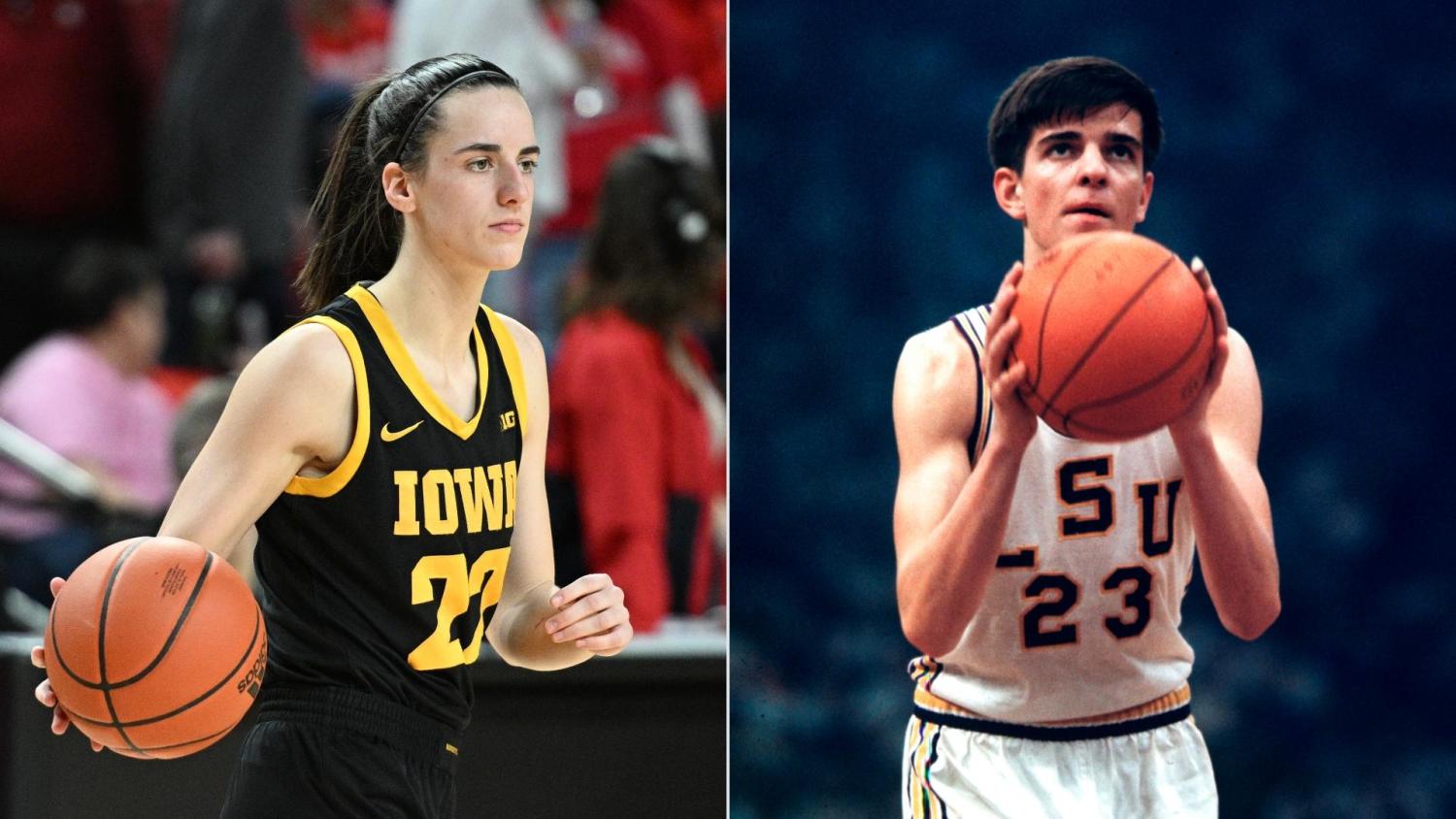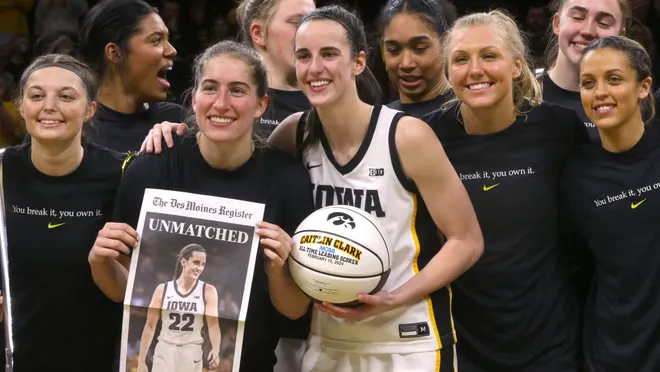
Sophia Yeskulsky| Sports Editor
February 25, 2024
Last Thursday (2/15), Iowa star Catlin Clark broke the NCAA Division I women’s basketball all-time scoring record that was originally held by Kelsey Plum, who played for Wahington and scored 3,527 points. Pete Maravich, who was an LSU superstar in the 70s, currently holds the record for the most points in the NCAA (men and women) with 3,667 points. Once Catlin passes Pete Maravich’s record, should she replace Maravich and receive the record for the most points in NCAA basketball?
In the past year, Catlin Clark has become the face of NCAA women’s basketball. Last year, she was named Associated Press Women’s College Basketball Player of the Year, even though her team didn’t win the NCAA tournament. Known for her swaggy and confident style of play, this point guard averaged 32.8 points per game. After the record-breaking game against Michigan, Clark scored an astounding 49 points, leaving her with 3,569 total career points. This puts her only 98 points behind Pete Maravich.
Pete Maravich, known by his nickname Pistol Pete, was a legendary shooting guard. Playing under his father at Louisiana State University, the 6’5” basketball superstar averaged a monstrous 44.2 points per game. During his three years, he scored 3,667 points and holds the record for the most points in a NCAA basketball career. He went on to the NBA and was the third pick in the first round of the 1970 NBA draft. He played 4 years for Atlanta and 5 for New Orleans. He was one of the youngest players ever inducted into the Naismith Memorial Basketball Hall of Fame.

When comparing the circumstances of Clark’s and Maravich’s careers, Maravich’s achievement of 3,667 points was significantly more impressive than Clark’s. During Maravich’s time at LSU, NCAA rules prohibited first-year students from playing at the varsity level, so Maravich achieved his scoring record in only three years compared to Clarks’s four and possibly five years. Additionally, the NCAA didn’t officially adopt the three-point line until 1986 as well. This means that Maravich could only score two-pointers. Per ESPN, Bob Carter stated, “Though Maravich played before […] the 3-point shot was established, he loved gunning from long range.” It has been reported that former LSU coach Dale Brown charted every shot Maravich scored and concluded that if his shots from three-point range had been counted as three points, Maravich’s average would have totaled 57 points per game and 12 three-pointers per game. During Clark’s career, she has hit more than 450 3s. Furthermore, the shock clock was yet to be adopted during Maravich’s career. This allowed teams to stall for very long periods of time, which ultimately reduced the amount of points that could be scored.
Jaeson Maravich, the son of Pete Maravich, explained that while he respects and admires Clark, he believes her record and his late father’s record should be considered separate entities.
“I look at my dad’s record, and if somebody breaks it, it’s almost like two totally different records just because of the circumstances and the rules and everything else,” he said. “I think they had said if he had played four years, he would have had close to 5,000. So, I said this last year: It’s kind of like an apple-to-orange comparison. And then, if you’re talking about the women’s record, I mean, to me, that’d be two totally separate records.”
Senior Samantha Lee sided with Maravich and commented, “If I were Maravich, I would still want to have the record all to myself.” However, junior Sarah Ellis disagreed and claimed, “Clark earned it. We shouldn’t go around discrediting her achievements because some guy didn’t have the same exact circumstances as her.” At the end of the day, Clark and Maravich are both extraordinary individuals who have paved the way in basketball and have inspired future generations. Due to the different circumstances of both careers, it would only be right if the NCAA created two separate records so that Clark and Maravich could both have a claim to the NCAA basketball all-time scoring record. As for now, both can find comfort in knowing that they will each hold the all-time scoring record for their gender.

Leave a Reply